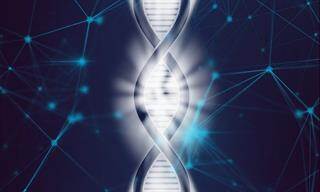DNA Source Level split-up in two separate subfields
At the end of 2021 the Board of Court Experts has decided to split up the subfield of DNA Source Level into two separate fields of expertise, namely DNA Source Level and DNA Source Level Extended. In this news article you will read what has changed and why.

Starting today experts can apply for registration for the following four subfields of Human DNA Analysis and Interpretation:
- 001.1 DNA Source Level
- 001.2 DNA Source Level Extended
- 001.3 DNA Kinship Analysis
- 001.4 DNA Activity Level
Why apply for registration?
Anyone can check in the Register whether an expert is qualified or not. The forensic expertise of registered experts is objectively assessed by an independent advisory assessment committee and is legally recognized as such. The commissioning party is obliged to substantiate why they consider an expert who is not included in the NRGD to be an expert.
How to apply for registration?
The following documents are important for your application:
- Standards Human DNA Analysis and Interpretation
- Application Form
- List of Case Information DNA
- Checklist Application Package DNA
- Overview Continued Professional Development DNA
- Certificate of Good Conduct (for Dutch applicants)
Correspondence
The NRGD will correspond with you by e-mail in Dutch or English. Please send your application to beheer@nrgd.nl.
The NRGD strives to process the registration procedure as swiftly as possible. If you have any questions about the procedure, you are welcome to contact one of our colleagues at the NRGD.
What has changed and why
Why has this field been split up?
In September 2020, the subfield of DNA Source Level area was updated to allow more DNA experts to register. As a result, some tasks were made optional, which meant that if an expert performed one or more optional tasks, he/she also had to submit a report containing this task. Unfortunately, this system caused some problems. It had become unclear to the applicant how many reports had to be submitted. It was unclear to the user of the register which experts had been assessed for which optional tasks. For our management it took significantly more work and time to process the applications, which increased the assessment time. These problems prompted the need to adapt the area.
What has changed with this split?
Previously the NRGD had the subfield DNA Source Level including four optional tasks:
001.1 Human DNA analysis and Interpretation – Source Level
Optional:
- Y-chromosomal DNA analysis
- Mitochodrial DNA analysis
- Examination Strategy
- Cell Typing
This has been changed to two separate subfields:
- 001.1 Human DNA analysis and Interpretation – Source Level
- 001.2 Human DNA analysis and Interpretation – Source Level Extended
The subfield 001.1 DNA Source Level retains all basic requirements and competencies, but the optional extended tasks will no longer be part of it. The subfield 001.2 DNA Source Level Extended will contain all basic requirements and competences including the following three tasks; cell typing, setting up and executing examination strategies, Y-chromosomal DNA analysis. The task Mitochondrial DNA analysis will not be part of DNA Source Level Extended, partly because this task is already part of DNA Kinship analysis.
Transitional arrangement
What will happen to my current registration?
If you are registered as a DNA expert in the area of 001.1 DNA Source Level without extended tasks, you will remain registered for this field, the extended tasks will no longer apply to this area. If you are registered as a DNA expert in the area 001.1 DNA Source Level with the extended tasks mentioned above or you are registered before September 2020, you will be registered for the area 001.2 DNA Source Level Extended.